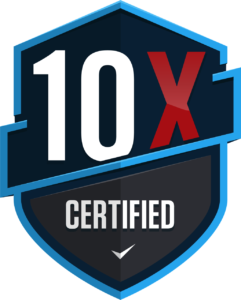Executive business coaching has emerged as a cornerstone in the development of effective leadership within the dynamic realm of modern business. It represents a specialized form of professional coaching, tailored to equip business leaders — from senior managers to CEOs — with the skills and insights necessary for peak performance and organizational growth.
At its core, executive business coaching is about empowering leaders to excel in their roles. By focusing on areas like strategic thinking, emotional intelligence, and decision-making, these coaching sessions provide a platform for personal and professional evolution. They are not just about honing leadership skills but also about fostering positive change across entire organizations.
In today’s fast-paced and complex business environment, the value of executive coaching cannot be overstated. It’s an investment in enhancing leadership capabilities, improving team effectiveness, and achieving long-term organizational goals. This article will delve into the nuances of executive business coaching, offering insights into how it shapes influential leaders, impacts organizational culture, and drives success.
Whether you’re a senior leader seeking a fresh perspective or interested in the strategic benefits of leadership development, this guide will explore the significant impact and lasting value of executive business coaching.

Defining Executive Business Coaching
Executive business coaching is a personalized, often transformative process focused on enhancing the leadership, strategic thinking, and decision-making skills of business professionals, particularly those in high-level positions like CEOs, senior managers, and other key stakeholders. It’s a targeted form of professional development that addresses the specific challenges and goals of individuals who bear significant responsibility in guiding their organizations.
Definition and Scope
At its heart, executive business coaching involves one-on-one sessions between a coach and an executive. These sessions are tailored to the individual’s needs, focusing on areas such as leadership style, executive presence, communication skills, and emotional intelligence. The scope can vary widely, from developing specific leadership capabilities to more comprehensive career coaching. It often includes goal setting, monitoring progress, and creating strategies to overcome challenges. The objective is to foster a level of self-awareness and skill development that not only benefits the individual but also has a ripple effect throughout the organization.
Historical Context and Evolution
The concept of executive coaching has its roots in the broader field of business coaching, which emerged prominently in the 1980s. Initially, it was more about problem-solving and performance improvement. Over time, it evolved to encompass a more holistic approach. The growing recognition of the importance of soft skills, emotional intelligence, and work-life balance in effective leadership influenced this evolution. Professional bodies like the International Coaching Federation have played a significant role in defining coaching standards and certifications, further professionalizing the field.
Key Components
The key components of executive business coaching include:
Leadership Development: Enhancing leadership skills, such as decision-making, conflict resolution, and strategic thinking.
Communication Skills: Improving effective communication with teams, peers, and other stakeholders.
Career Coaching: Focusing on career growth and development within the organizational context.
Emotional Intelligence: Developing skills to understand and manage one’s own emotions and those of others.
Performance Coaching: Aiming at improving the individual’s performance within the organization.
Executive Presence: Building confidence and the ability to inspire and motivate others.
Each component plays a vital role in shaping a well-rounded, effective leader who can navigate the complexities of modern business environments and lead their teams to success.
The Role of an Executive Business Coach
An executive business coach plays a pivotal role in the professional growth and development of business leaders. Their responsibilities and goals extend beyond traditional training or mentoring, as they work closely with executives to unlock their full potential and guide them towards achieving both personal and professional objectives.
Responsibilities and Goals
Facilitating Self-Discovery: Coaches help executives gain deeper self-awareness, identify strengths and weaknesses, and understand their impact on the organization.
Goal Setting: They assist in defining clear, achievable goals aligned with both the executive’s career aspirations and the organization’s objectives.
Strategy Development: Coaches aid in developing strategies to tackle challenges, enhance performance, and capitalize on opportunities.
Skill Enhancement: Focusing on improving specific skills such as leadership capabilities, decision making, and emotional intelligence.
Providing Feedback: Offering constructive, unbiased feedback to foster continuous improvement.
Accountability: Ensuring that executives stay committed to their developmental plans and goals.
Distinguishing from Other Business Coaches
Executive coaches are distinct in their focus on high-level leadership and organizational impact. While other business coaches might concentrate on broader business strategies or individual skill sets, executive coaches delve into the nuances of leadership within the corporate hierarchy. They often have experience in senior leadership roles themselves, granting them a unique perspective on the challenges and pressures faced by executives.

The Benefits of Executive Coaching in Your Business
Executive business coaching offers a multitude of benefits, impacting not only the individual leaders who partake in it but also the broader organization they are part of. The advantages range from enhanced individual performance and leadership skills to long-term organizational and personal growth.
Impact on Individual Performance and Leadership Skills
Enhanced Decision-Making Abilities: Coaching helps leaders make more informed, strategic decisions by improving their analytical and critical thinking skills.
Improved Leadership Skills: Coaches work on developing key leadership capabilities such as empathy, motivation, and conflict resolution, vital for effective team management.
Increased Self-Awareness: Leaders gain insights into their behavior and impact, leading to improved personal effectiveness and leadership style.
Better Communication Skills: Coaching aids in honing communication techniques, ensuring leaders convey their ideas and feedback more effectively.
Heightened Emotional Intelligence: Leaders learn to better understand and manage their emotions and those of others, leading to healthier workplace relationships.
Organizational Benefits
Improved Management: Enhanced leadership skills lead to better management practices, positively impacting team dynamics and efficiency.
Increased Productivity: With better decision-making and management comes increased productivity and operational efficiency within the team and the organization.
Employee Retention and Satisfaction: Effective leadership often results in higher employee satisfaction and retention rates, as workers feel more valued and understood.
Cultivating a Positive Organizational Culture: The ripple effect of improved leadership behaviors can foster a more positive, inclusive, and high-performing organizational culture.
Long-Term Advantages for Personal and Professional Growth
Career Advancement: Executives who undergo coaching often find themselves better equipped for higher responsibilities and leadership roles.
Lifelong Learning and Adaptability: Coaching instills a mindset of continuous learning and adaptability, critical in today’s ever-changing business landscape.
Building a Robust Professional Network: Coaching often opens doors to new professional connections and opportunities.
Work-Life Balance: Coaching can help leaders achieve a healthier balance between their professional responsibilities and personal life, leading to overall well-being.
In conclusion, the benefits of an executive coaching program, especially when it includes executive leadership coaching, are extensive and multifaceted. It’s an investment that yields dividends not just in the immediate future but also in the long-term trajectory of both the leader’s career and the success of their organization.
When and Why Executive Business Coaching Matters
Executive business coaching is a powerful tool for leadership development, yet understanding the right timing and context for its application is crucial. It becomes particularly relevant when business leaders face specific challenges or are poised to achieve new objectives. The impact of coaching is often seen in the transformative effects it has on both the leaders and their organizations.
Identifying the Right Time for Coaching
During Leadership Transitions: Whether stepping into a senior leadership role or taking on new responsibilities, executive coaching can provide the necessary support and guidance for a smooth transition.
When Facing Specific Challenges: Times of organizational change, such as mergers, acquisitions, or market shifts, often call for enhanced leadership skills, where coaching can be instrumental.
Performance Improvement: Leaders struggling with certain aspects of their role, be it decision-making, team management, or strategic planning, can benefit significantly from coaching.
Career Stagnation: For leaders feeling stuck or unsure about their career path, coaching can offer new perspectives and rejuvenation.
Addressing Common Challenges and Objectives
Executive coaches help leaders tackle a range of challenges, including:
Enhancing Leadership Presence and Skills: Building confidence, executive presence, and leadership capabilities.
Strategic Thinking and Decision Making: Developing the ability to think strategically and make decisions that align with long-term organizational goals.
Improving Communication and Emotional Intelligence: Cultivating skills to effectively communicate and connect with teams, peers, and stakeholders.
Navigating Organizational Politics: Guiding leaders to better navigate the complexities and dynamics of corporate leadership.
Real-World Examples of Transformative Effects
The High-Potential Leader: A young executive identified as a high-potential talent in a multinational corporation underwent coaching to prepare for a senior leadership role. The coaching focused on strategic thinking and leadership skills, resulting in the executive successfully taking over a critical division and driving substantial growth.
The Struggling CEO: A CEO facing low employee retention and poor company culture engaged in executive coaching. The process helped them develop a more inclusive leadership style, improve communication skills, and re-align the organizational culture, leading to improved employee satisfaction and business performance.
The Visionary Entrepreneur: An entrepreneur with a fast-growing startup turned to executive coaching to refine their leadership approach. The coaching journey enhanced their decision-making abilities, emotional intelligence, and team management skills, propelling the company to new heights.
In each case, executive coaching was not just about addressing immediate needs; it was about fostering a sustainable transformation that enhanced personal effectiveness and propelled organizational success.

Choosing the Right Executive Business Coach
Selecting the right executive business coach is a critical decision that can significantly influence the effectiveness of the coaching experience. The right coach can propel a leader’s growth, whereas a mismatch can hinder progress. Understanding the key criteria for selection, the importance of compatibility, and knowing what questions to ask is essential in this process.
Criteria for Selecting an Effective Coach
Experience and Background: Look for a coach with a robust history in coaching, preferably with experience relevant to your industry or specific challenges. An executive coach with a track record of successfully coaching other business leaders or with a background in senior leadership can offer invaluable insights.
Credentials and Certification: Seek coaches who are credentialed by recognized bodies like the International Coaching Federation (ICF). Certifications such as Professional Certified Coach (PCC), Associate Certified Coach (ACC), or Master Certified Coach (MCC) are indicators of a well-trained coach who adheres to high professional standards.
Coaching Style: Each coach has a unique approach. Some may be more directive, offering specific advice and strategies, while others may adopt a more facilitative style, helping you uncover solutions through guided questioning. Consider what style aligns best with your learning preferences.
Importance of Compatibility and Trust
The relationship between a coach and an executive is foundational to the success of the coaching engagement. It’s crucial to have a rapport and trust with your coach, as this relationship often involves sharing personal and professional challenges openly.
Compatibility in communication style, values, and personalities can greatly enhance the effectiveness of the coaching process.
Questions to Ask a Potential Coach
- What is your coaching experience, particularly with similar clients or industries?
- Can you provide references or case studies from previous coaching engagements?
- What coaching certifications or credentials do you hold?
- How do you define your coaching philosophy and style?
- How do you measure the success of your coaching engagements?
- Can you describe your approach to confidentiality and ethical coaching practices?
- How do you tailor your coaching to individual client needs?
- What is your availability and flexibility for coaching sessions?
Choosing the right executive coach is about finding someone who not only has the expertise and experience but also aligns with your personal and professional objectives. This careful selection process ensures that the coaching relationship will be a powerful catalyst for growth and achievement.
Integrating Executive Coaching into Corporate Culture
Incorporating executive coaching into an organization’s culture and development programs is not just a trend; it’s a strategic approach to fostering leadership excellence and organizational growth. Understanding how to effectively integrate coaching into various aspects of business operations, including leadership development, succession planning, and talent management, is crucial. Moreover, measuring the return on investment (ROI) of these initiatives ensures that the benefits of coaching are not just qualitative but also quantifiable.
Embedding Coaching into Leadership Development Programs
Customized Coaching Initiatives: Tailor coaching programs to align with the organization’s specific leadership competencies and goals. This might involve one-on-one coaching for high-potential employees or group coaching sessions focused on specific skill sets.
Continuous Learning Culture: Encourage a culture where continuous learning and self-improvement are valued. This can be achieved by making coaching a standard part of professional development for all levels of leadership.
Coach Specific Training: Provide training to internal mentors and senior leaders to develop foundational coaching skills, fostering a coaching mindset throughout the organization.
Role in Succession Planning and Talent Management
Identifying Future Leaders: Use executive coaching to identify and nurture high-potential employees, preparing them for future leadership roles.
Skill Gap Analysis: Coaching can help in assessing and addressing skill gaps in the existing talent pool, ensuring readiness for succession.
Retention of Top Talent: Coaching programs demonstrate an organization’s commitment to the personal and professional growth of its employees, which can be a key factor in retaining top talent.
Measuring the ROI of Executive Coaching
Performance Metrics: Track improvements in specific performance metrics related to the goals of the coaching engagement, such as increased productivity, efficiency, or sales figures.
Employee Engagement Surveys: Assess changes in employee satisfaction and engagement levels, which can be indicators of the positive impact of coaching on the organizational culture.
360-Degree Feedback: Before and after coaching programs, gather feedback from a variety of sources, including peers, direct reports, and supervisors, to assess changes in leadership effectiveness.
Succession Readiness: Evaluate the success of coaching in terms of succession planning outcomes, such as the number of internal promotions to leadership positions.
Integrating executive coaching into the corporate culture is not a one-size-fits-all approach. It requires thoughtful planning, alignment with organizational values and goals, and a commitment to measuring and evaluating its impact. When done effectively, it can lead to a more empowered, engaged, and high-performing leadership team, driving the organization toward sustained success.

Executive business coaching stands as a beacon in the realm of leadership development, offering a pathway to personal and professional excellence for business leaders and organizations alike. Throughout this article, we’ve explored the multifaceted nature of executive coaching, its role in enhancing leadership capabilities, and its transformative impact on both individual leaders and their organizations.
Key Takeaways
Tailored Leadership Development: Executive coaching is a highly personalized process focused on enhancing an array of leadership skills, from decision-making and strategic thinking to emotional intelligence and communication.
Organizational Growth: Beyond individual benefits, coaching contributes significantly to the overall health and performance of an organization by improving management practices, boosting productivity, and fostering a positive culture.
Long-Term Impact: The effects of executive coaching are enduring, equipping leaders with a mindset geared towards continuous learning and adaptability, crucial in the fast-paced business world.
As we’ve seen, the right time for coaching can vary, but its relevance is undeniable, especially in times of transition, challenge, or growth. Choosing the right coach is a critical step, necessitating careful consideration of experience, credentials, and compatibility. And when integrated thoughtfully into corporate culture, executive coaching not only becomes a part of the organizational fabric but also a key driver of its success.
If you’re a business leader in Denver looking to amplify your impact, or an organization seeking to elevate your leadership team, executive coaching offers a proven pathway to achieving those goals. It’s an investment in the most crucial asset of any business – its people. For executive business coaching in Denver, contact us at Business Coach Denver. The journey towards excellence is continuous, and executive business coaching is a powerful companion on that journey, unlocking potential, and paving the way for both personal fulfillment and organizational triumph.

